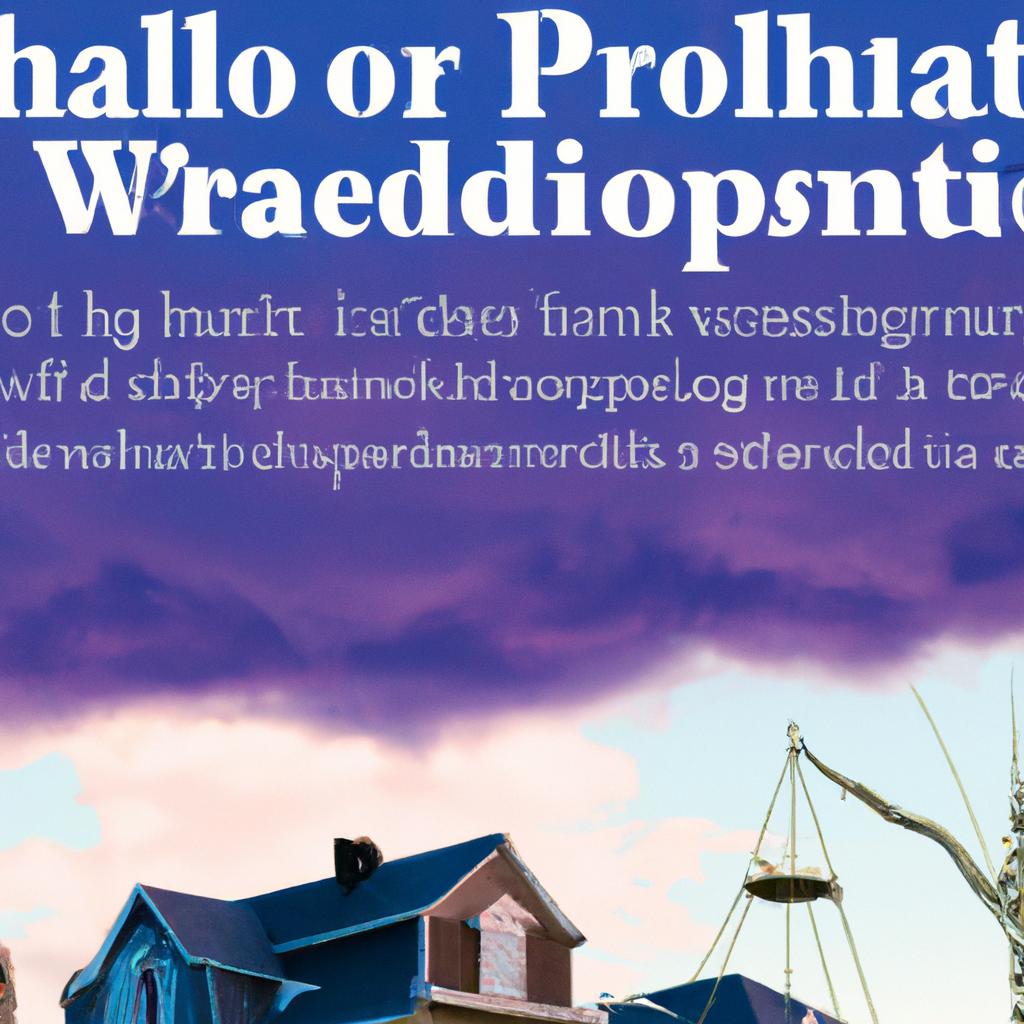Losing a loved one is a difficult and emotional experience, and dealing with the legal process can add to the stress. It’s common to wonder if a will means that the deceased’s estate can bypass probate. Understanding the complexities of probate can provide clarity and peace of mind during this challenging time. Let’s delve into the details of this often misunderstood process to gain a better understanding of what might be required when settling a loved one’s affairs.
The Role of Probate When a Will Exists
Even if a will exists, the probate process may still be necessary. Probate is the legal process of administering the estate of a deceased individual, which includes distributing assets and settling debts. Despite the presence of a will, the estate might still need to go through probate to ensure that the deceased’s wishes are properly carried out.
Considerations When a Will Exists
When a will exists, certain factors need to be taken into account:
- Verification of the will’s validity
- Asset distribution as outlined in the will
- Notification and payment of creditors
- Potential disputes among beneficiaries
If disputes or complications arise during the probate process, seeking legal guidance from an experienced estate planning attorney can be beneficial. They can provide valuable advice and help navigate any challenges that may arise.
Understanding the Probate Process with a Will
When a loved one passes away, their estate typically goes through probate, which involves validating the deceased person’s will, identifying assets, paying off debts, and distributing the remaining assets to the beneficiaries. It’s important to note that having a will does not necessarily mean that probate can be avoided entirely. While a will can provide guidance on asset distribution, it still needs to be validated by the court before assets can be distributed.
Factors Influencing the Need for Probate with a Will
Several factors determine the need for probate with a will, including the complexity of the estate, disputes among beneficiaries, potential creditors, and the validity of the will. These factors influence the likelihood of needing probate, and seeking legal advice is recommended to determine the specific requirements for each situation.
Exploring Alternatives to Probate with a Valid Will
Although having a valid will can streamline the probate process, there are alternatives to probate that can expedite the distribution of assets and minimize time and cost. These alternatives include the use of a revocable living trust, joint tenancy with right of survivorship, and certain assets such as retirement accounts, life insurance policies, and bank accounts with payable-on-death designations.
In Summary
While having a will in place can streamline the probate process, it does not guarantee that probate can be entirely avoided. Each situation is unique, and the complexity of the estate ultimately determines whether probate is required. Consulting with a probate attorney can provide guidance on the best course of action for specific circumstances. Remember, probate is a legal process to ensure that the deceased’s wishes are carried out and debts are settled. With a clear plan in place, the probate process can be as smooth as possible for all parties involved.

Understanding Probate: What Happens if There’s a Will?
Probate is the legal process of administering the estate of a deceased person, resolving any claims and distributing the deceased individual’s property according to their will. When a person passes away, their assets and liabilities need to be settled, and the probate court oversees this process. If the deceased individual had a will, the probate court will use it as a guideline for distributing assets and settling debts.
Probate Process
The probate process can vary depending on the state laws and the complexity of the estate. Here is a general overview of what happens when there is a will:
- The will is submitted to the probate court.
- The court authenticates the will to ensure its validity.
- An executor is appointed to manage the estate and carry out the instructions in the will.
- Creditors are notified of the death, and debts are settled using the assets in the estate.
- Assets are identified, appraised, and distributed according to the will.
- A final accounting is prepared, and the estate is closed.
Benefits of Having a Will
Having a will simplifies the probate process and ensures that your assets are distributed according to your wishes. Some benefits of having a will include:
- Control over the distribution of assets
- Minimization of family conflicts
- Appointment of trusted individuals as guardians for minor children
- Potential tax benefits
Practical Tips
If you are preparing a will, consider the following tips to make the probate process smoother:
- Select an executor who is trustworthy and organized.
- Update your will regularly to reflect changes in your circumstances.
- Consider using a trust to distribute assets outside of probate.
- Consult with an estate planning attorney to ensure your will is legally valid.
Case Studies
Here are a couple of case studies to illustrate how the probate process works when there is a will:
| Name | Assets | Executor |
|---|---|---|
| John Smith | House, car, savings | Jane Doe |
| Mary Johnson | Investments, jewelry, artwork | Michael Brown |
First-Hand Experience
Dealing with a loved one’s estate can be overwhelming, but having a will in place can simplify the process. As an executor, I followed the instructions in the will and worked closely with an attorney to ensure everything was done correctly. While probate can be time-consuming, having a clear roadmap in the form of a will made the process much smoother.
understanding probate when there is a will is crucial for navigating the legal procedures involved in settling an estate. By being informed and prepared, you can ensure that your assets are distributed according to your wishes and minimize any potential conflicts among family members.


